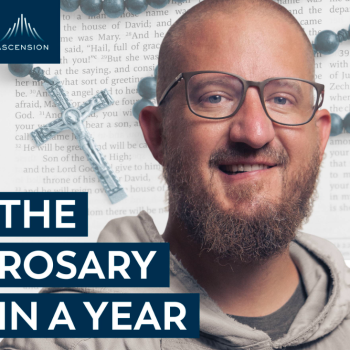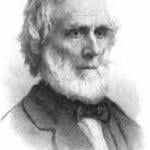It's hard for contemporary movie audiences to grasp the change wrought in the western world by the horrors of world war, Nazi death camps, and the atomic and hydrogen bombs. The weight of bureaucratically-managed technology led to tens of millions of dead civilians, and the ensuing Cold War threw a blanket of paranoia over the American public. Those of us in today's cinema seats can't imagine a time before this change.
But for adults in 1954, the change was underway. It was raw, and fresh, and traumatizing. Veterans were haunted by memories of what they had done, and what they had witnessed. Ordinary citizens were pushed into madness by visions of worldwide nuclear war. Fears of conspiracy twisted American society into a kind of conformist lockdown, fueled by effective fear campaigns conducted by right-wing media, Joseph McCarthy, the House Committee on Un-American Activities, and J. Edgar Hoover. Hints of FBI penetration into the privacy of ordinary Americans compounded the anxiety. It was hard to find help, as "talk therapy" -- at least in the vision of Shutter Island and related films -- was barely on the lips of psychiatrists, who debated the relative merits of electro-shock and lobotomy over the emerging field of psychopharmacology.
All these troubling issues whirl through the community at Ashcliffe and through Teddy Daniels' increasingly fevered mind. In the America of 1954, paranoia was both a political weapon and a common response to the changed conditions of domestic and international relations. On Shutter Island, it becomes increasingly difficult to know whom to trust.
We spend the movie wondering, along with Daniels, what is real and what is delusional, fearing that he is losing his mind and hoping his strength will hold long enough for him to free himself and the others from paranoia and conspiracy, suffering and powerlessness. But when the plot's big twist is revealed, the social and historical relevance of the film is wiped away. For whatever baffling reason, Scorsese decided to clarify beyond doubt what is real and what is not. So in the end, Shutter Island is about nothing more than one man's sad and hopeless attempt to redeem himself.
In an interview with SFGate, Scorsese mentioned that he was reading Dante's Divine Comedy and Milton's Paradise Lost while working on Shutter Island. Dante and Milton take us to hells so frightening that no mortal could truly survive them. Yet many do visit such hells: soldiers serving in Iraq or Afghanistan certainly do, along many others whose sense of moral order has been shattered by traumatic violence. We are all touched in some way by the doubt of the atomic age, the fear that there is no God to hold it all in place for us, to give it sense and meaning. This is why Shutter Island is so emotionally compelling. We pull so hard for Daniels. We hope so much that he finds his way through his personal judgment day, and perhaps even leaves a path for us to follow.
But when the movie ends and the lights go up, we realize that Scorsese has left us not with a map of the apocalypse, but a tragedy. Daniels is a kind of everyman. Even when he doesn't know whom to trust, he bravely stands up for the truth. He fights to save innocent victims of injustice and cruelty, all the while contending with his own traumatic memories. The geography and people of Shutter Island seem to want to convince him that the troubles he sees in the world are really just in his own mind. He struggles mightily to cleave to what he believes, with no more resources than any one of us could summon in his situation. In this, Daniels is heroic. His final act leaves us troubled and sad.
Despite my disappointment, Shutter Island took hold of me. Like Paradise Lost and the Divine Comedy, the movie reminded me, like a far-off and barely recalled memory, that our own judgment day is coming, if it hasn't already. Each of us will enter a hurricane that demands an account of our deeds, and each of us will struggle to survive. Some of us, more troubled than others, will struggle to surface before drowning. All of us will be stripped to our rawest selves in our self-inflicted confrontation with that dreadful question: "What is a human being?" In our souls' dark night, we will cry out for redemption. But in our wars, surgical strikes, and mass killings, we gave up something precious. No answer will come.
I'd like to thank Richard D. Erlich, professor Emeritus at Miami University, for his highly useful notes on the first draft of this review, and for his always stimulating insights.
Beth Davies-Stofka teaches courses on comparative religion and the philosophy of religion. She has also been an online columnist and critic and contributes regularly to the Patheos site.





